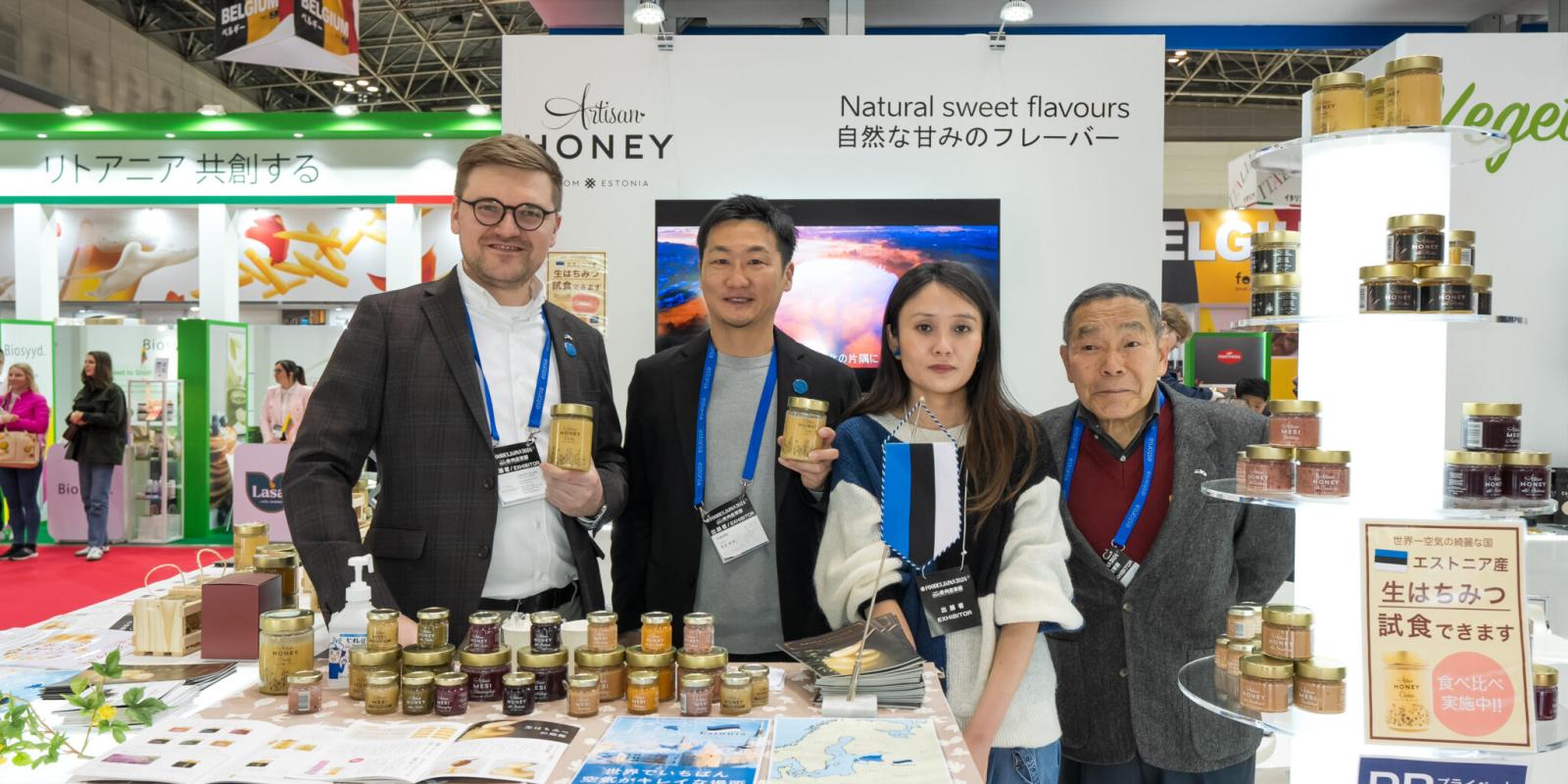One of the products showcased by government agency Enterprise Estonia at the recent FoodEx Japan show in Tokyo was DNA-certified honey from Artisan Honey.
The firm, best known for its raw, natural honey products, has been active in Japan for the last decade.
While it only managed to ship around 800kg of products for the first five years, this shot up to 20,000kg over the next five.
It’s main sales channel in Japan is e-commerce, where it has found particular success on Rakuten, with its products topping the best-seller list despite being one of the highest-priced in the honey category.
Approximately 47,000 tons of honey are consumed annually in Japan, of which 45,000 tons are imported.
The company is now hoping to boost exports, not only to Japan but also potentially South Korea and Singapore, by stressing its authenticity credentials.
According to a report released by the European Union (EU), 46% of honey imported into Europe was suspected of having syrup added, and 147 of 320 samples were found to not comply with EU honey standards.
Activities range from counterfeiting and substitution to false labeling, which not only causes consumers to lose trust in genuine products, but also poses serious health risks. It also weakens legitimate producers and suppliers who comply with the rules.
To address these challenges, Estonia has sought to combine the nation’s ICT technology with R&D and biotechnology expertise to provide innovative solutions.
Celvia, a research institute providing food safety and related testing services in the country, has become something of a pioneer in DNA testing of honey. The company’s cutting-edge technology can verify the authenticity of honey from its DNA sequence, and in this way also detects pathogens and fraudulent additives, allowing for product quality assurance.
According to Kaarel Krjutskov, CEO of Celvia, DNA analysis identifies every plant, animal, bacteria, fungus and insect that the honey and bees come into contact with, ensuring unparalleled traceability and quality control.
“With growing demand for testing from beekeepers, packers and retailers, we look forward to continuing to work with our partners in Japan to enhance honey quality assurance,” he added.
Artisan Honey has now added the fact its products are DNA-certified to its packaging, with founder and CEO Sander Sulane saying that he hopes it will build trust with Japanese consumers.
“We are confident that the DNA-certified packaging we are showcasing will be well received in the Japanese market. As DNA testing of honey becomes more widespread in the future, it will promote fair competition in the global market and make it possible to more reliably prove product quality. We believe that this transparency will lead to even more trust with customers in Japan and overseas. Reliability is in our company’s DNA.”
He added that the firm’s long-term plan is to be steadily present in Japan and grow step by step.
“We recently shipped to a new client, a central warehouse that supplies over 4,000 stores. Unfortunately, the Japanese yen has been weak for some time now, and importing has become very expensive for the Japanese, slowing down business growth.
Mait Martinson, Ambassador of the Republic of Estonia to Japan, added that honey was one of the foods most susceptible to adulteration and required ‘special attention’.
“Estonia is leading the effort with its pioneering DNA testing technology to detect adulteration. We are committed to ensuring this technology can play a key role in eliminating counterfeit products from the international market. We believe that a transparent and trustworthy industry will benefit consumers around the world and open up new opportunities for quality honey producers not only in Estonia but across the industry.”
Honey is a very important food commodity for Estonians, with around 10,000 households producing their own honey, which accounts for up to 16% of the honey produced in the country. It is estimated that Estonians consume an average of 1.15 kg of honey per person per year.


